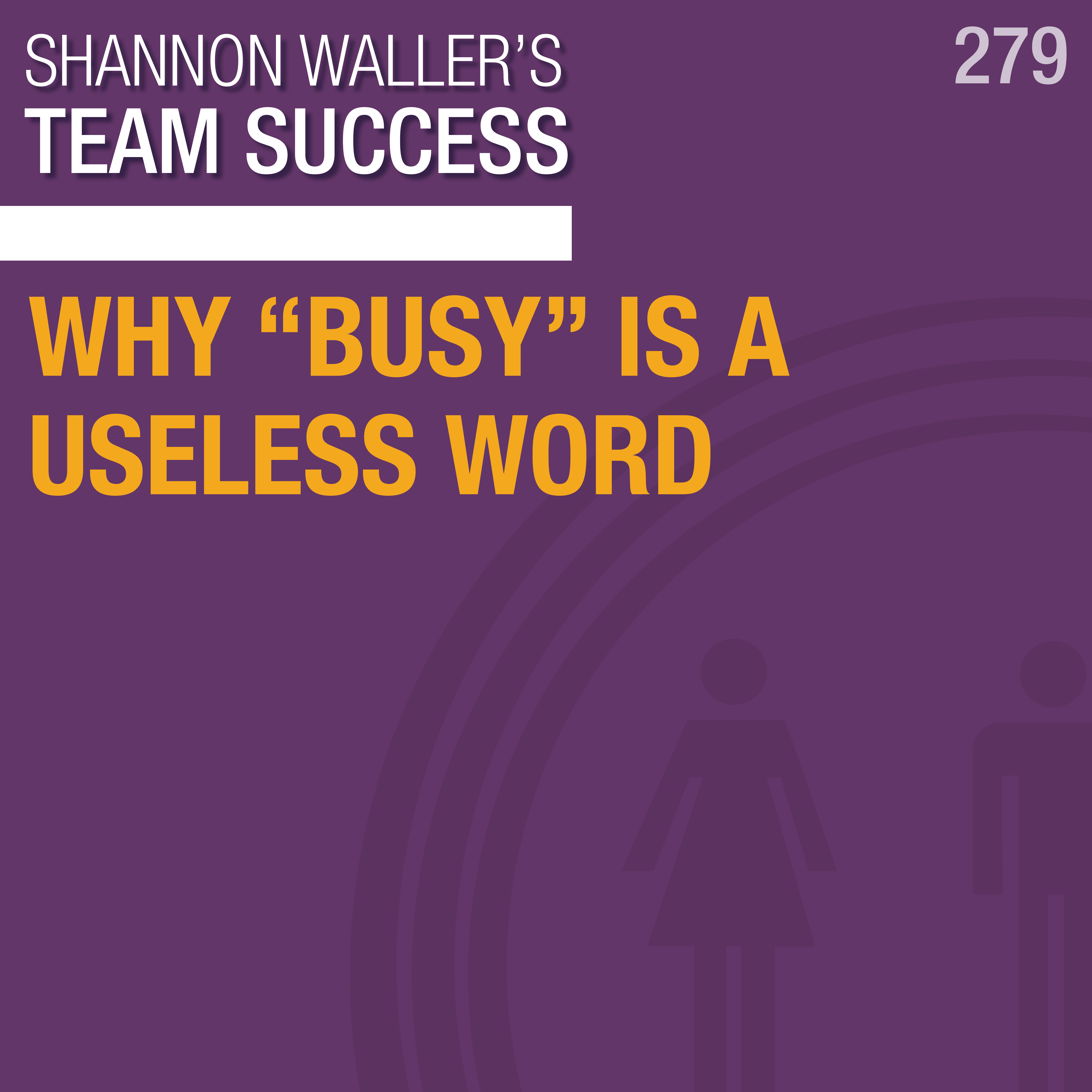Have you ever noticed that the word “busy” is often used as an excuse and stops further action and progress? In this episode, Shannon Waller tackles this word that’s all too common in our vocabularies, yet is significantly unproductive. Join Shannon on this productive rant to discover why we should eliminate this word from our conversations and how we can communicate more effectively about our time and priorities.
Download Episode Transcript
Show Notes:
The Problem With “Busy”
- Busy is a stop sign in conversations, offering no real information or specificity.
What “Busy” Really Means
- When we say we’re busy, we’re often saying something isn’t a priority for us.
“Busy” As A Statement Of Overwhelm
- Recognize busy for what it often is—a statement of feeling overwhelmed.
- What is truly overwhelming us? Let’s address those specific issues.
The Cultural Implication Of “Busy”
- Society often pressures us to appear busy as a badge of honor. But being busy doesn’t equate to being productive or profitable.
- “A tightly scheduled entrepreneur cannot transform.” Dan Sullivan
“Busy” As An Excuse
- Using busy as an excuse can lead to missed opportunities.
- Saying we’re busy may be a less-than-transparent way of avoiding things we don’t want to do.
- Strive for honesty and clarity in your commitments and desires.
Taking Action
1. Productive, Useful Relationships
- When someone labels you as busy, engage in a curious and open conversation to explore why they perceive you that way. This can uncover assumptions and lead to a healthier relationship by understanding each other’s time and priorities.
2. Self-Coaching Through “Busy”
- Feeling busy? Coach yourself through what’s really going on and what’s overwhelming you. Then, reprioritize your commitments to align with your true values, goals, or three crucial results.
3. Communicate Transparently
- “That’s not a priority for me right now” is more authentic and constructive than “I’m busy.”
4. Build In Space To Connect
- Even if you have an “energetic,” lily pad calendar with back-to-back meetings, you can also build in buffer time to reflect, decompress, offload, and check in with people.
We want to hear from you!
Has this conversation about busy struck a chord with you? Do you have strategies for communicating more effectively about your time and priorities? Share your thoughts and experiences with us at questions@strategiccoach.com.

 Shannon Waller's Team Success
Shannon Waller's Team Success 
